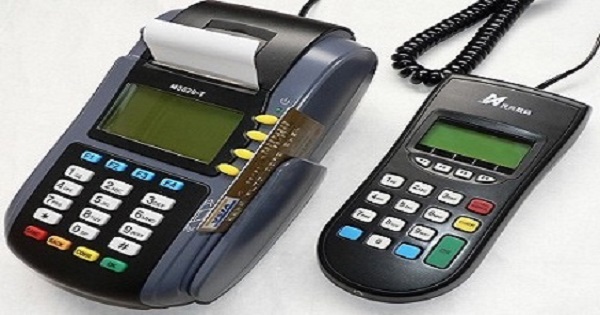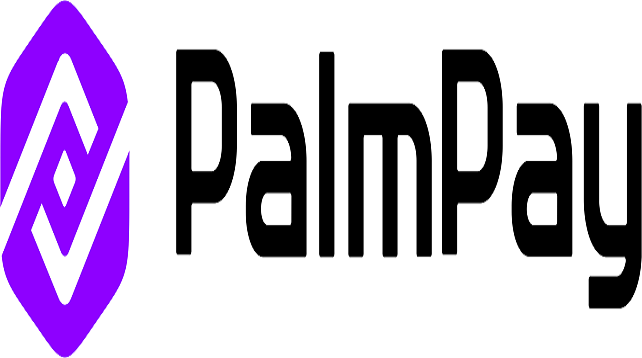E-Financial
Super Agents, Agents Locked in PoS Chargeback Confusion

Super Agents and agents under them in the Central Bank of Nigeria (CBN) financial inclusion initiative are today locked in Point of Sale chargeback issues, which has resulted in some agents going out of business, Nigeria CommunicationsWeek has learnt.
One of the cases involves Innovectives a super- agent in Shared Agent Network Expansion Facilities (SANEF) programme and Ecosystems Hybrid Network, where Innovectives according Ecosystem have under paid her and agents under its channel to a turn of N15 million arising from PoS chargeback between January and July this year.
Fasasi Sarafadeen Atanda, managing director, Ecosystem Hybrid Network, said the issue has lingered for this long because there is no dispute mechanism in settlement issues between providers and agents.
“The issues around PoS chargeback are beyond debit of customers as there is no complaint mechanism in place for financial inclusion services.
“In a formal banking system, there is complaint mechanism where customers are allowed to lodge complaint and tracking number given to them; if such issue were not resolved the customer can escalate it to CBN with the tracking number.
“For Agency banking, which is informal and still financial service the mechanism of formal should not be used in resolving complaints as the scenario are different.
Responding to the claims, Emmanuel Agha, chief executive officer, Innovectives, said that what his company owes Ecosystem is N8.6million of which N2million has been paid.
“The way PoS chargeback is structured, you have to wait for the banks to pay you and this takes a long time for it to be resolved,” he said.
He added that because other agents are involved in the issues his company has started paying Ecosystem without waiting for banks to refund her, noting that the issue of PoS chargeback with agents is not peculiar to his company but an industry issue that needs to be address.
Explaining PoS chargeback and its delay as frustrating for PoS as a payment channel, Tosin Eniolorunda, chief executive officer, TeamApt, said: “chargeback is when a customer buys goods or service at a point of sale terminal and was debited but the PoS did not print receipt showing a successful transaction, because it did not print a receipt, the merchant will refuse to give the customer the goods he requested for, while your account have been debited. In this situation, you will have to go to your own bank which is not the bank of your merchant and file a claim of your money that is called chargeback.
“The problem is resolved today by your bank logging it against the merchant and the merchant bank needs to investigate if that claim is correct or not, if it is true he did not give the customer the value, he will attest to the bank that it is true and for his bank to return the money to the customer. If it is not true the bank will request for evidence that the merchant actually gave the customer the value.
“The evidence that is accepted today in the industry is a paper receipt. That paper that was printed from the PoS, you need to go and get it, scan it and attest to the bank you gave that customer his value for the money not to be refunded.
“Imagine a very larger merchant that prints a lot of receipts you need to be storing PoS receipts and that receipt fads away with time.
“This challenge is why merchants are crying about chargebacks because they cannot respond appropriately and have only three days to do that before they will be charged. The way to solve it is to prevent the merchants from needing to present receipt which is through e-journal,” he explained.
Electronic journal is ability of PoS to keep an evidence of all its transactions, when it keeps all those evidences; it sends them to a remote server at the bank of the merchant.
“POS has the capacity to do electronic journal. A regulatory push for PTSPs to implement e-journal will go a long way to addressing this problem. If regulator mandates that operators should implement e-journal in the next two months it will be done”.
E-Financial
GOEs’ Remit Over ₦2tn to FG in 2024

Independent revenue remittance by the Government-Owned Enterprises (GOEs) moved from ₦200 billion in 2013 to over ₦2 trillion in 2024, Fiscal Responsibility Commission (FRC) confirmed the updated figure, on Wednesday.

FRC attributed the surge to collaboration between it and House of Representatives Public Accounts Committee (PAC).
Speaking at 2025 National Conference on Public Accounts and Fiscal Governance, held at the Transcorp Hilton, Abuja, Executive Chairman of the Fiscal Responsibility Commission (FRC), Victor Muruako, Esq however notes with concern persistent challenge despite achievements. He cited weak enforcement mechanisms, limited public awareness, and the slow domestication of the FRA at the subnational level as according to him, only 26 out of 36 states have adopted similar laws.
He advocated for the establishment of a National Fiscal Governance Framework to improve coordination and strengthen audit and oversight structures.
Muruako further underscored the need for strict adherence to constitutional provisions, particularly regarding public debt and borrowing, which remain under the exclusive legislative list. He urged federal and sub-national actors to align their fiscal policies under the renewed hope agenda of President Tinubu’s administration.
Muruako called on state and local government operators across Nigeria to adopt and fully implement fiscal responsibility laws in line with the federal framework.
The event organized by House of Representatives Public Accounts Committee (PAC), brought together key financial stakeholders to discuss strategies for promoting transparency and sustainable development in Nigeria’s public financial management.
He lauded administration’s of president Bola Ahmed Tinubu commitment to strengthening financial policies aimed at driving economic growth. He emphasized that states and local governments must “key into” the Fiscal Responsibility Act (FRA) to ensure fiscal discipline and alignment with federal financial standards.
Highlighting a critical legislative gap, Muruako noted that the FRA 2007 currently outlines 54 offenses but does not prescribe punishments for offenders. He called for the urgent amendment of the Act to include stronger penalties, thereby enhancing compliance and service delivery.
“The Act must be amended speedily for efficiency and to deliver real value to Nigerians,” he stressed.
He congratulated the PAC, led by Hon. Bamidele Salam, for hosting the conference, which he described as a pivotal step toward strengthening accountability in the public sector.
He advocated for the establishment of a National Fiscal Governance Framework to improve coordination and strengthen audit and oversight structures.
Muruako further underscored the need for strict adherence to constitutional provisions, particularly regarding public debt and borrowing, which remain under the Exclusive Legislative List. He urged federal and subnational actors to align their fiscal policies under the Renewed Hope agenda of President Tinubu’s administration.
Reaffirming the FRC’s commitment to advancing transparency and reducing financial leakages, Muruako pledged continued support to the PAC in institutionalizing sound public financial management practices.
He also congratulated the committee for securing Nigeria’s hosting rights for the 2025 West African Association of Public Accounts Committees (WAPAC) Annual Conference, describing it as a testament to Nigeria’s leadership in regional fiscal governance.
E-Financial
Union Bank Challenges High Court Ruling in Jimoh Ibrahim Case

Union Bank of Nigeria has reacted to the recent judgment delivered by Justice Abike Fadipe of the Ikeja High Court involving Senator Jimoh Ibrahim, NICON Investment Limited, Global Fleet, and the bank.

The bank expressed strong disagreement with the ruling and confirmed that its legal team has been directed to file an appeal immediately. It said the court’s position on issues such as debt consolidation, locus standi, and third-party liability contradicts existing legal principles and the bank’s understanding of the facts.
In a statement released by Mrs. Olufunmilola Aluko, Chief Brand and Marketing Officer, Union Bank reiterated that the relevant debt obligations had been transferred to the Asset Management Corporation of Nigeria (AMCON), adding that all actions taken were in line with the law and standard banking procedures.
Union Bank assured stakeholders, customers, and the general public of its continued commitment to ethical practices, legal compliance, and professional conduct. It said it remains dedicated to protecting stakeholder interests and upholding the integrity that has defined its operations for more than a century.
The bank concluded by thanking all stakeholders for their trust and support as it navigates the ongoing legal process.
E-Financial
PalmPay Expands Access to Digital Insurance Through Strategic Partnerships

PalmPay, a leading digital banking platform in Africa has announced the launch of strategic partnerships with top-tier insurance providers to offer accessible, affordable and simplified insurance products directly within the PalmPay app.

This initiative reflects the brand’s continued commitment to deepening financial inclusion and underscores its mission to improve the wellbeing of everyday Nigerians.
With only about 8.9% of Nigerians currently covered by any form of health insurance, the country remains one of the least insured populations in Africa. Barriers such as low awareness, affordability challenges, and trust issues continue to hinder broader adoption of insurance products.
PalmPay’s new insurance offering directly addresses these challenges by simplifying the purchase and management of insurance policies within the app. The PalmPay insurance feature is designed to make essential coverage, from health to device, and life insurance easily accessible at affordable prices, eliminating the traditional complexities often associated with insurance.
“Insurance is often perceived as complex or inaccessible, especially among underserved communities.” said Habib Kowontan, Head of Wealth Product at PalmPay. “Through these partnerships, we aim to break down those barriers by offering simple, reliable and affordable insurance options that are easily accessible within the PalmPay app.”
With over 35 million users across Nigeria, PalmPay continues to evolve as a smart, consumer-first digital banking platform. The integration of insurance services complements its growing suite of offerings, which includes transfers, bill payments, high-interest savings, and debit card services, making PalmPay one of the most comprehensive digital banking platforms in the African market.
“Our goal at PalmPay is to remove barriers and make essential services easily accessible to everyone,” said Mr Chika Nwosu, Managing Director of PalmPay. “Through these strategic partnerships, we’re expanding our services to be more inclusive and empowering our users with products that will positively impact their lives and finances.”
This rollout marks a significant milestone in PalmPay’s broader strategy to empower users with tools that enhance their daily lives. Building not just a payments app, but a smart and trusted financial partner for millions of Nigerians.

 Telecom2 days ago
Telecom2 days agoNCC Wins Global ICT Award for Digital Awareness in Schools

 Broadcasting2 days ago
Broadcasting2 days agoMore Woes for MultiChoice as Ghana Orders 30% Price Cut

 News2 days ago
News2 days agoNnamani, CEO Digital Realty Nigeria Bags Digital Economy Icon of the Year @ Digital Innovation Awards in Ghana

 News2 days ago
News2 days agoFG Says No Going Back to Nuclear Testing

 E-Financial2 days ago
E-Financial2 days agoAscensia Finance Commences Operations in Abuja

 News2 days ago
News2 days agoDICON, Saudi Firm to Produce Drones, Satellites in Nigeria

 Broadcasting1 day ago
Broadcasting1 day agoEFCC Re-Arraigns Echefu, TStv CEO for Allegedly Defrauding Ex-Minister of N1Bn, $1.3m

 News2 days ago
News2 days agoNIPOST to Crack Down on Criminal Courier Operators



























